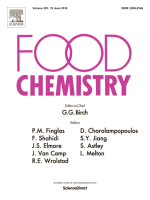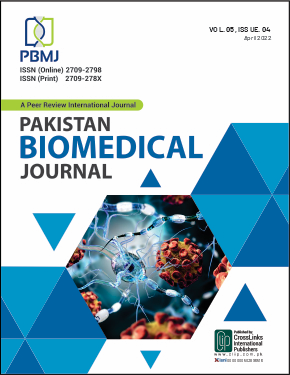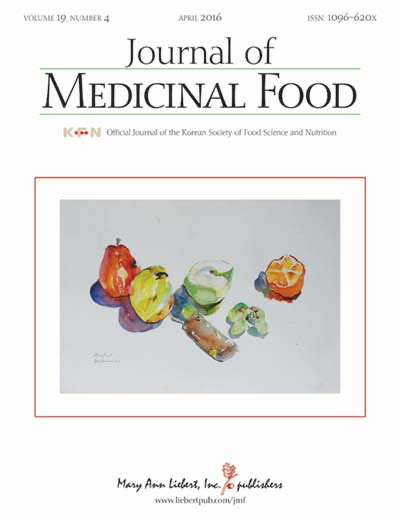Sesame »
Sesame Oil
How to submit an article:
- Registered users can submit any published journal article that has a unique DOI (Digital Object Identifier) name or link to Research Hub.
- For example, you can paste the full DOI link:
https://doi.org/10.1109/5.771073or just the DOI name:10.1109/5.771073into the field above and click submit. - The person who is first to submit a valid article to Research Hub will forever be credited for it, and every article submission earns you +6 Research Points.
Related Topics
Published research studies are articles that present the findings of original research that has undergone a peer-review process and has been made publicly available in scholarly journals, books or other media.

Food and nutraceutical functions of sesame oil: An underutilized crop for nutritional and health benefits
2022 Sep Food Chemistry Langyan S, Yadava P, Sharma S, Gupta NC, Bansal R, Yadav R, et al.
Sesame oil, despite being an under-utilized minor crop, is rich in nutrients such as lignans, tocopherols, phytosterols, natural antioxidants, and bioactive compounds. The review underscores its various health benefits, including anti-lipogenic, hypo-cholesterolemic, anti-degenerative, and neural health-promoting properties. The study emphasizes the need for more research to explore sesame oil's food and nutraceutical potential, positioning it as a valuable candidate for maintaining diversity in food oils and improving human health.
Theoretical Article Review Article Sesame Oil
Hypolipidemic effect of Sesame Seed Oil: A Review
2022 Apr 30 Pakistan BioMedical Journal Arshad M, Ashfaq M, Rizwan B, Zanib R, Fatima A, Pervaiz R, et al.
Sesame seed oil and its derivatives have shown to be highly effective in managing hyperlipidemia and dyslipidemia due to their lipid ameliorating and anti-oxidative effects.
Experimental Study Review Article Cholesterol Sesame Oil Hypercholesterolemia
Consumption of sesame seeds and sesame products has favorable effects on blood glucose levels but not on insulin resistance: A systematic review and meta‐analysis of controlled clinical trials
2022 Jan 18 Phytotherapy Research Sohouli MH, Haghshenas N, Hernández‐Ruiz , Shidfar F
Systematic Review Meta-Analysis Blood Sugar SesameConsumption of sesame seeds and its products positively influences human glucose metabolism, potentially making it a beneficial addition to glucose-lowering diets.

Do sesame seed and its products affect body weight and composition? A systematic review and meta-analysis of controlled clinical trials
2018 Oct Journal of Functional Foods Raeisi-Dehkordi H, Mohammadi M, Moghtaderi F, Salehi-Abargouei A
Systematic Review Meta-Analysis Sesame OilSesame oil intake was associated with reduced body weight and body mass index.

Effects of the Intake of Sesame Seeds (Sesamum indicum L.) and Derivatives on Oxidative Stress: A Systematic Review
2016 Apr 13 Journal of Medicinal Food Gouveia Lde A, Cardoso CA, de Oliveira GM, Rosa G, Moreira AS.
Systematic Review SesameThe studies assessed showed that sesame could have a significant effect on oxidative stress and the antioxidant defense system, being considered a food with an important antioxidant function in the different populations studied.
Research insights are moderated by the Research Hub team and offer an at-a-glance overview of interesting research findings.

2022 Phytotherapy Research
Consumption of sesame seeds and its products positively influences human glucose metabolism, potentially making it a beneficial addition to glucose-lowering diets.
Systematic Review Blood Sugar Sesame
Consumption of sesame seeds and sesame products has favorable effects on blood glucose levels but not on insulin resistance: A systematic review and meta‐analysis of controlled clinical trials
Sohouli MH, Haghshenas N, Hernández‐Ruiz , Shidfar F

2018 Journal of Functional Foods
Sesame oil intake was associated with reduced body weight and body mass index.
Systematic Review
Do sesame seed and its products affect body weight and composition? A systematic review and meta-analysis of controlled clinical trials
Raeisi-Dehkordi H, Mohammadi M, Moghtaderi F, Salehi-Abargouei A

2016 Journal of Medicinal Food
The studies assessed showed that sesame could have a significant effect on oxidative stress and the antioxidant defense system, being considered a food with an important antioxidant function in the different populations studied.
Systematic Review Sesame
Effects of the Intake of Sesame Seeds (Sesamum indicum L.) and Derivatives on Oxidative Stress: A Systematic Review
Gouveia Lde A, Cardoso CA, de Oliveira GM, Rosa G, Moreira AS.
Review Articles
Review articles summarise and critically evaluate the current state of research on a specific topic or field by synthesising multiple primary research studies.

Food and nutraceutical functions of sesame oil: An underutilized crop for nutritional and health benefits
2022 Sep Food Chemistry Langyan S, Yadava P, Sharma S, Gupta NC, Bansal R, Yadav R, et al.
Sesame oil, despite being an under-utilized minor crop, is rich in nutrients such as lignans, tocopherols, phytosterols, natural antioxidants, and bioactive compounds. The review underscores its various health benefits, including anti-lipogenic, hypo-cholesterolemic, anti-degenerative, and neural health-promoting properties. The study emphasizes the need for more research to explore sesame oil's food and nutraceutical potential, positioning it as a valuable candidate for maintaining diversity in food oils and improving human health.
Theoretical Article Review Article Sesame Oil
Hypolipidemic effect of Sesame Seed Oil: A Review
2022 Apr 30 Pakistan BioMedical Journal Arshad M, Ashfaq M, Rizwan B, Zanib R, Fatima A, Pervaiz R, et al.
Sesame seed oil and its derivatives have shown to be highly effective in managing hyperlipidemia and dyslipidemia due to their lipid ameliorating and anti-oxidative effects.
Experimental Study Review Article Cholesterol Sesame Oil Hypercholesterolemia
Consumption of sesame seeds and sesame products has favorable effects on blood glucose levels but not on insulin resistance: A systematic review and meta‐analysis of controlled clinical trials
2022 Jan 18 Phytotherapy Research Sohouli MH, Haghshenas N, Hernández‐Ruiz , Shidfar F
Systematic Review Meta-Analysis Blood Sugar SesameConsumption of sesame seeds and its products positively influences human glucose metabolism, potentially making it a beneficial addition to glucose-lowering diets.

Do sesame seed and its products affect body weight and composition? A systematic review and meta-analysis of controlled clinical trials
2018 Oct Journal of Functional Foods Raeisi-Dehkordi H, Mohammadi M, Moghtaderi F, Salehi-Abargouei A
Systematic Review Meta-Analysis Sesame OilSesame oil intake was associated with reduced body weight and body mass index.

Effects of the Intake of Sesame Seeds (Sesamum indicum L.) and Derivatives on Oxidative Stress: A Systematic Review
2016 Apr 13 Journal of Medicinal Food Gouveia Lde A, Cardoso CA, de Oliveira GM, Rosa G, Moreira AS.
Systematic Review SesameThe studies assessed showed that sesame could have a significant effect on oxidative stress and the antioxidant defense system, being considered a food with an important antioxidant function in the different populations studied.
This is the link to the full article: https://anniebello.com.br/wp-content/uploads/2018/01/JOURNAL-OF-MEDICINAL-FOOD-2016.pdf —Jinnan C 23 Aug 2021
can't find full article — 20 Aug 2021
Clinical Trials
Clinical trials are research studies that involve people and are conducted to evaluate the safety and efficacy of new treatments or interventions, such as drugs, medical devices, or behavioural therapies.
Study Protocols
Published study protocols are detailed plans that outline the objectives, methodology, statistical analyses, and organisation of a research study that have been made publicly available for others to review and use as a reference.
Presentation Slides

Systematic Review
Consumption of sesame seeds and its products positively influences human glucose metabolism, potentially making it a beneficial addition to glucose-lowering diets.
Sohouli MH, Haghshenas N, Hernández‐Ruiz , Shidfar F

Systematic Review
Sesame oil intake was associated with reduced body weight and body mass index.
Raeisi-Dehkordi H, Mohammadi M, Moghtaderi F, Salehi-Abargouei A

Systematic Review
The studies assessed showed that sesame could have a significant effect on oxidative stress and the antioxidant defense system, being considered a food with an important antioxidant function in the different populations studied.
Gouveia Lde A, Cardoso CA, de Oliveira GM, Rosa G, Moreira AS.
Executive Summary
Write an executive summary in the form of a blog article on the topic of "Research into Chinese medicine treatment for Sesame Oil" summarising the research below and using language that can be easily understood by patients and avoiding medical jargon using a professional and caring tone of voice.
Write an executive summary in the form of a blog article on the topic of "Researched Chinese medicine treatments for Sesame Oil" summarising the research below in an objective and easy to understand way, and using language that can be easily understood by patients. Group the article into Chinese medicine treatments first, followed by nutrition and other treatments. Avoid using medical jargon and use a professional and caring tone of voice.
Write me a concise but easy to understand executive summary on the topic of "Chinese medicine treatments for Sesame Oil" based on the following research that I will give you. Your summary should be 2 paragraphs long in Australian English spelling and include references to the studies.
A Systematic Review published in 2022 in the journal Phytotherapy Research found that Consumption of sesame seeds and its products positively influences human glucose metabolism, potentially making it a beneficial addition to glucose-lowering diets. The methodology involved conducting a systematic review and meta-analysis on the effect of sesame seeds consumption on blood glucose and insulin resistance in adults. The researchers gathered data from recognized academic resources like PubMed/MEDLINE, SCOPUS, Web of Science, Google Scholar, and EMBASE, which included controlled clinical trials up until February 2021. The sesame products in these trials ranged from sesame oil, sesamin, and tahini, with the intervention period lasting from 45 days to 9 weeks. The results illustrate that the intake of sesame and its products significantly improved fasting blood glucose and Hemoglobin A1c levels. Nonetheless, the results regarding fasting serum insulin and the homeostatic model assessment for insulin resistance were not found to have any significant relation. Hence, the consumption of sesame might be a beneficial supplement for managing glucose levels in humans.
A Systematic Review published in 2018 in the journal Journal of Functional Foods found that Sesame oil intake was associated with reduced body weight and body mass index. A number of studies suggested that sesame products improve body weight and composition. This was the first meta-analysis of the effect of sesame on body weight and composition. Ten controlled clinical trials were eligible to be included in the systematic review. Sesame supplementation improved body fat percent and body adiposity index. Sesame oil intake was associated with reduced body weight and body mass index. Sesame consumption did not affect other indices of body composition.
A Systematic Review published in 2016 in the journal Journal of Medicinal Food found that The studies assessed showed that sesame could have a significant effect on oxidative stress and the antioxidant defense system, being considered a food with an important antioxidant function in the different populations studied. In conclusion, despite the limitations and biases of this systematic review, the studies assessed showed that sesame could have a significant effect on oxidative stress and the antioxidant defense system, being considered a food with an important antioxidant function in the different populations studied (individuals with dyslipidemia, diabetes, and hypertension), as well as in its different presentations (oil, seed flour, and capsule). However, better-controlled studies still lack to assess the positive effects on different populations. There are few clinical trials assessing the effect of sesame on oxidative stress. The studies included in this review, mainly those with sesame oil and black sesame meal capsules administered to hypertensive and prehypertensive populations, respectively, showed an increase in enzymatic (SOD, GSH, GPx, and CAT) and nonenzymatic antioxidants (vitamin C, vitamin E, and beta-carotene), as well as a reduction in oxidative stress markers (TBARS and MDA). Although several studies have reported that the exact mechanisms of oxidative stress reduction remain to be fully explained, this review showed that sesame can have a significant positive impact on the health of different popula- tions.
Moderation Tools
Topic
Sign In
Users not signed in are limited to viewing the 5 most recent items of content.
This is the link to the full article: https://anniebello.com.br/wp-content/uploads/2018/01/JOURNAL-OF-MEDICINAL-FOOD-2016.pdf —Jinnan C 23 Aug 2021
can't find full article — 20 Aug 2021